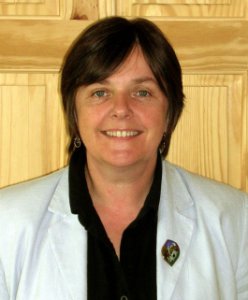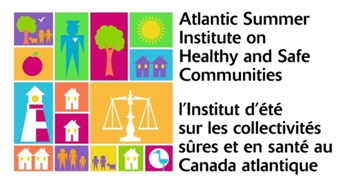Keynote Address
Mental health, planetary health and a wellbeing society: Looking to the future
Professor Margaret Barry and Trevor Hancock in conversation
The Atlantic Summer Institute is noteworthy because it has made a point of tackling big societal and community issues that influence the health and mental wellbeing of the community, and especially young people. Over the first decade the focus was on those big societal issues – diversity, inter-generational connection, gender, literacy, leadership and democracy – as they relate to creating healthy and safe communities.
Then in 2015, the focus shifted more specifically to child and youth mental health, with a significant focus on upstream community and societal approaches, including the need for a ‘whole-of-society’ approach, supportive environments and upstream investment. That remained the focus until 2021, when the focus broadened out again, with themes such as community connection, hope and collaboration.
So that was the first 20 years. What of the next 20 years?
Well, much of that same set of issues and approaches applies – the challenges to health and mental wellbeing have not gone away. We still don’t pay enough attention to improving mental and social wellbeing, the field is still not being properly funded and resourced, so not well implemented. The focus – as with physical wellbeing – is still too much on the individual and not enough on the broader community and societal factors that we know can protect and promote mental and social wellbeing.
The intersecting crises of addictions, mental health, brain trauma and homelessness reveal a massive failure of public policy and societal compassion. But new challenges have emerged, particularly to child and youth mental wellbeing, not the least being the revolution in the use of social media (and who knows what the implications of AI may be?), and the growing challenge of isolation and loneliness, affecting people of all ages. Then there are the impacts on mental wellbeing of our awareness of climate change and broader ecological changes. And of course, in many parts of the world, war and conflict exact a horrendous toll, while our own communities are not immune to community and domestic violence. Finally, economic uncertainty is a factor, especially in a neo-liberal gig economy and in light of the challenges of both the ecological crisis and the potential for AI to displace jobs.
But the planetary health challenges we face – we have crossed six of nine planetary boundaries and are approaching two others – have broader health and wellbeing impacts. Indeed, they challenge the continuity of our current way of life and the stability of our entire society, if we continue on as we are. The response the World Health Organization proposes is the creation of “sustainable ‘well-being societies’ committed to achieving equitable health now and for future generations without breaching ecological limits”. That means changing our relationship with nature, putting human wellbeing and planetary health at the very heart of governance and societal and community decision-making, and shifting to a wellbeing economy that puts people and planet ahead of profit and power. These issues, and what this all means for the business of creating healthy, safe, just and sustainable communities, is the subject matter we expect to cover in our opening keynote conversation.
Keynote Speakers

Professor Margaret Barry holds the Established Chair in Health Promotion and Public Health at the University of Galway, where she is also Director of the World Health Organization Collaborating Centre for Health Promotion Research. Having published widely in mental health promotion, she works closely with policymakers and practitioners on the development, implementation and evaluation of interventions and policies at a national and international level. Professor Barry has extensive experience of coordinating international mental health promotion initiatives and has acted as expert adviser on mental health promotion policy and research development in a number of countries around the world. Professor Barry served two terms as a member of the European Commission Expert Panel on Effective Ways of Investing in Health (2013-2016; 2016-2019) and was elected global President of the International Union for Health Promotion and Education (2019-2022), where she established a Global Working Group in Mental Health Promotion.
Dr. Trevor Hancock is a nationally and internationally recognised public health physician and health promotion consultant. Over the course of his career he helped develop the concept of healthy public policy and helped create the global healthy cities and communities movement while working for the City of Toronto. Then after 16 years as an independent consultant he moved to BC in 2002, where he led the development of core public health programs for BC before becoming a Professor and Senior Scholar at the School of Public Health and Social Policy at the University of Victoria.Throughout his career he has had a strong focus on the links betweeen health and wellbeing and the environment. He was the first leader of the Green Party of Canada in the 1980s, co-founded the Canadian Association of Physicians for the Environment in the 1990s and the Canadian Coalition for Green Health Care in 2.000.While he ‘retired’ in 2018, he remains active locally, provincially, nationally and internationally. His main areas of interest are planetary health, population health promotion, healthy cities and communities, public health, healthy public policy, healthy and ‘green’ hospitals, health policy and planning, and health futurism.He has published over 40 book chapters and nearly 100 academic journal articles, as well as numerous reports and articles in newsletters and the media. Since December 2014 he has written a regular weekly column on population and public health for the Times Colonist, the daily newspaper in Victoria.He was made an Honourary Life Member of the Canadian Public Health Association in 1990 and an Honourary Fellow in the UK’s Faculty of Public Health in 2015. In 2017 he was awarded the Defries Medal, the CPHA’s highest award, presented for outstanding contributions in the broad field of public health, as well as a Lifetime Contribution Award from Health Promotion Canada.

